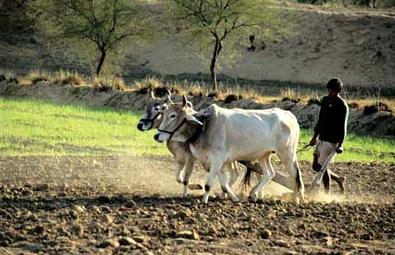The warning came just over a week after the European Union decided to compulsorily test all U.S. shipments of long-grain rice. That followed a discovery that U.S. imports to Europe were contaminated with genetically modified (GMO) rice.
No biotech rice is allowed to be grown, sold or marketed on the territory of the European Union's 25 countries.
India has carried out field trials of mostly short-grain rice at 10 different sites across the country since 2005, but the Supreme Court last month suspended fresh tests on all crops until a further court hearing.
Previous trials show no signs of GM seeds infecting rice exports.
But importers and farmers fear the risk of contamination through mixing of seeds during storage or in transportation could affect consumer confidence and India's reputation as a "clean and reliable" rice exporter.
"Indian rice is GM-free and we want to keep it that way," said R.S. Seshadri, director of Tilda Riceland and a member of the All-India Rice Exporters Association (AIREA) -- which represents exporters like Satnam Overseas, Sunstar, Kohinoor.
"We are asking them not to do further testing ... we need to review guidelines and enforce stricter standards in light of what has happened in the U.S.," he told a news conference.
India is the largest producer and exporter of Basmati rice -- a long-grain rice priced for its characteristic subtle aroma and delicious taste -- and exported 1.15 million tonnes, generating 30.3 billion rupees in the 2005/6 financial year.
Although most of the tests were on short-grain rice, farmers say many were not informed that field trials were taking place near their own rice paddys. If contamination occurs in exported stocks, buyers in Europe and Middle Eastern countries might ban Indian products, unions say.
"The GM-testing happening in this country is a dirty joke which is being played on us," said Yudhvir Singh, a senior official from the Bharatiya Kisan Union, a union representing hundreds of thousands of farmers across India.
"We run the risk of hundreds of thousands of farmers losing their livelihoods if bans are imposed or we lose consumer confidence in products."
No biotech rice is allowed to be grown, sold or marketed on the territory of the European Union's 25 countries.
India has carried out field trials of mostly short-grain rice at 10 different sites across the country since 2005, but the Supreme Court last month suspended fresh tests on all crops until a further court hearing.
Previous trials show no signs of GM seeds infecting rice exports.
But importers and farmers fear the risk of contamination through mixing of seeds during storage or in transportation could affect consumer confidence and India's reputation as a "clean and reliable" rice exporter.
"Indian rice is GM-free and we want to keep it that way," said R.S. Seshadri, director of Tilda Riceland and a member of the All-India Rice Exporters Association (AIREA) -- which represents exporters like Satnam Overseas, Sunstar, Kohinoor.
"We are asking them not to do further testing ... we need to review guidelines and enforce stricter standards in light of what has happened in the U.S.," he told a news conference.
India is the largest producer and exporter of Basmati rice -- a long-grain rice priced for its characteristic subtle aroma and delicious taste -- and exported 1.15 million tonnes, generating 30.3 billion rupees in the 2005/6 financial year.
Although most of the tests were on short-grain rice, farmers say many were not informed that field trials were taking place near their own rice paddys. If contamination occurs in exported stocks, buyers in Europe and Middle Eastern countries might ban Indian products, unions say.
"The GM-testing happening in this country is a dirty joke which is being played on us," said Yudhvir Singh, a senior official from the Bharatiya Kisan Union, a union representing hundreds of thousands of farmers across India.
"We run the risk of hundreds of thousands of farmers losing their livelihoods if bans are imposed or we lose consumer confidence in products."

